A Page from North Quabbin History: A teacher's diaries
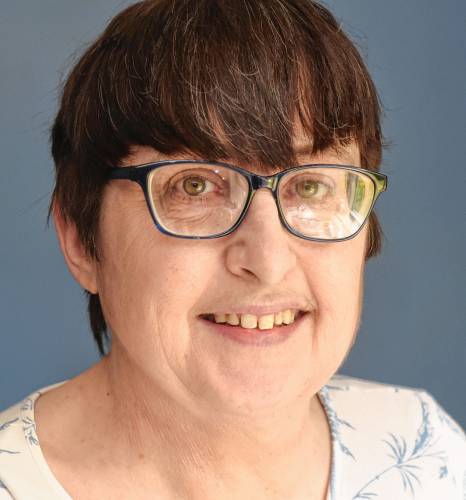
Carla Charter pf Phillpston. Paul Franz
| Published: 10-23-2023 5:00 PM |
By Carla Charter
John Wilson said diaries which belonged to his mother, Millicent E. (Coleman) Wilson “are a snapshot of what it was like in Orange in the 1920s from one teenage girl’s perspective.”
His mother, Millicent Wilson, was born in Lockes Village in the south end of Wendell at the intersection of Shutesbury, Leverett and Wendell.
“In 1990 I unexpectedly inherited eight of my mother’s pocket diaries and have been in the process of transcribing them for several years now,” Wilson said.
The diaries span 1924-1932, skipping the year 1925. There was only one diary in 1932.
“By 1932, she was married, had two children and a third on the way...I never knew about these journals until she passed away,” Wilson said.
A mother’s story
The first journal was written by Millicent when she was 18 and a senior at Orange High School, which was then located at Butterfield School.
Article continues after...
Yesterday's Most Read Articles
 Work on Pinedale Avenue Bridge connecting Athol and Orange to resume
Work on Pinedale Avenue Bridge connecting Athol and Orange to resume
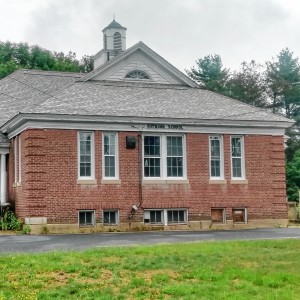 $700K debt exclusion would fund repairs to Raymond Hall
$700K debt exclusion would fund repairs to Raymond Hall
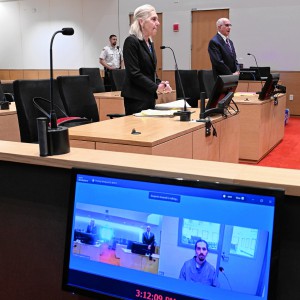 Lawyer argues Joshua Hart’s 2018 conviction for Orange murder had inconsistent verdicts
Lawyer argues Joshua Hart’s 2018 conviction for Orange murder had inconsistent verdicts
 UMass basketball: Minutemen nab another transfer in Arizona State forward Akil Watson
UMass basketball: Minutemen nab another transfer in Arizona State forward Akil Watson
 More than 130 arrested at pro-Palestinian protest at UMass
More than 130 arrested at pro-Palestinian protest at UMass
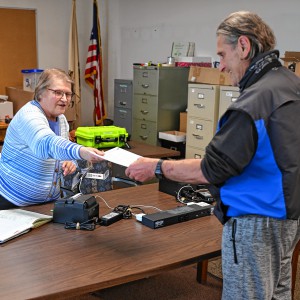 Erving voters say ‘no’ to $3.7M debt exclusion
Erving voters say ‘no’ to $3.7M debt exclusion
“That journal tells of half of the last year of high school, beginning on New Year’s Eve and continues to cover the whole graduation event that year,” Wilson said.
Wilson added that since the diaries are four to five inches with two to four days on each page, he had to read between the lines.
“I am not just transcribing them, but seeking out background information on all the people and places mentioned,” Wilson said. “I am also illustrating them with family photos, local scenes and typical objects not typical today—victrolas, ice boxes, movie posters, touring cars etc. All to better paint a broader picture of small town life in that larger than life decade.”
Among the places he has done additional research include the Orange Historical Society, which holds a complete collection of the Orange Peals, a magazine produced at Orange High School.
In the Commencement Edition of Orange Peals, “There was a fictional letter from the future, authored by the writer of the Class Prophecy from my mother to another girl in her class. It has my mother dating Rudolph Valentino and mentions Babe Spooner, (one of his mother’s friends) also a star, dating Charlie Chaplin.”
Wilson said that yearbooks at that time were just photo albums of everyone in the class, with no text.
“That edition of the Orange Peals and earlier ones include the sort of text you see in post-WWII yearbooks: most attractive, most bashful, class athlete, poet, etc., along with nicknames which tend to sound like characters in a 1920s gangster film—Spike, Shorty, Bunnie, Kitten, hobbies, most memorable feature, behaviors, or a student’s activities.”
Wilson’s mother’s activity was listed as teaching, as she was already student teaching at Central School.
“In contrast with that image in the Prophesy, the more down-to-earth Class Will gifted her a huge book on ‘Methods of Teaching’ so she could become ‘the perfect schoolmarm.’ Which is actually what did happen,” Wilson said.
The Orange Peal magazine listed Millicent’s hobby as “Tuesday nights in Wendell,” where she often attended dances at Putnam Hall. It was during one of those dances where Millicent met Wilson’s father, Rodney S. Wilson, who played cornet for Goodnow’s Orchestra. The band played a mix of old-fashioned dances including Contra dances, as well as jazz and the foxtrot.
“My dad played his cornet in the brass section. He would sit out during the Contra dancing, (which did not require a brass section) but he wouldn’t sit—he would go ask the girls to dance,” Wilson explained, adding that the couple married in 1928.
Millicent’s nickname in high school was Millie the Vamp, as she knew some dance moves, Wilson said.
“...All I can figure is that it relates to her dancing ability—she really enjoyed trying out new dances, so probably knew how to tango,” said Wilson. “And the way nicknames happen: just posing once in a dramatic dip or promenade position with some fun-loving boy in the high school hallway may have been enough to award enduring status as a ‘vamp.’”
Wilson added that it may also refer to Millicent’s personal sense of humor.
“She was a fun-loving mother... The idea of her her doing the Charleston and being called the Vamp was hard to imagine.”
The journals also document the beginning of training at of the Hyannis Normal School for Teaching, where Millicent was trained to teach grades first through eighth. Once she graduated from college, she taught at the Brush Valley one-room schoolhouse in Warwick, which had seven grades, Wilson said. He said the maximum students who attended were 16 but there were usually a dozen.
“There were some regulars and some that would come and leave—I suspect someone in the family did logging or worked on a farm...The older kids helped the younger kids,” Wilson continued.
The 1926-1928 journals cover most of her time teaching school in Warwick.
“The 1928 diary is supplemented by a draft manuscript that may have formed the basis of something called ‘The Book of Good Deeds,’” said Wilson.
This draft basically documented what happened over the school day and held a list of italicized chores done by specific students such as cleaning of blackboard, bringing in water and doing repairs in the classroom. She only taught there three years, said Wilson, adding that when he grew up his mother substitute taught at the North Orange Schools.
The 1928-1932 journals covered Millicent Wilson’s early married life during the initial years of the Great Depression. Wilson has done a basic transcription of the 1929 diary but has yet to work on those beyond that. He said he has transcribed the first four of the eight journals all together and has been working on the project for two years. Wilson is considering publication of the journals once they are transcribed.
Wilson was originally from Athol and now lives in Conway. He graduated from UMass with degrees in Archaeology. He worked as an archaeologist for 10 years for the Army Corp of Engineers in New England, then for 26 years as an archaeologist for the U.S. Fish and Wildlife Service. Although Wilson does not keep journals himself he has written articles for several professional journals.
Carla Charter is a freelance writer from Phillipston. Her writing focuses on the history of the North Quabbin area. Contact her at cjfreelancewriter@earthlink.net.

 Athol Royalston Middle School Honor Roll Term 3
Athol Royalston Middle School Honor Roll Term 3 Valley lawmakers seek shorter license for FirstLight hydropower projects
Valley lawmakers seek shorter license for FirstLight hydropower projects Federal funding for victim assistance drops, state support tries to help
Federal funding for victim assistance drops, state support tries to help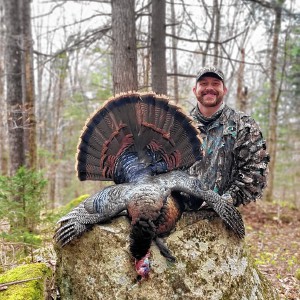 Sportsman’s Corner: The quest for the Super Slam
Sportsman’s Corner: The quest for the Super Slam